News

This page contains a listing of news and announcements related to the IIS and its projects.

New research explores Muslim families’ experiences with child welfare services in Ontario
March 12, 2024The Institute of Islamic Studies (IIS) is proud to announce a new research project that will explore Muslim families’ experiences with the child welfare system in Ontario. This project will be housed under the IIS’ Structural Islamophobia Research Lab (SIRL). Limited research on child welfare system and Muslim’s experienceThere is a growing concern in Muslim […]
Read this article⟶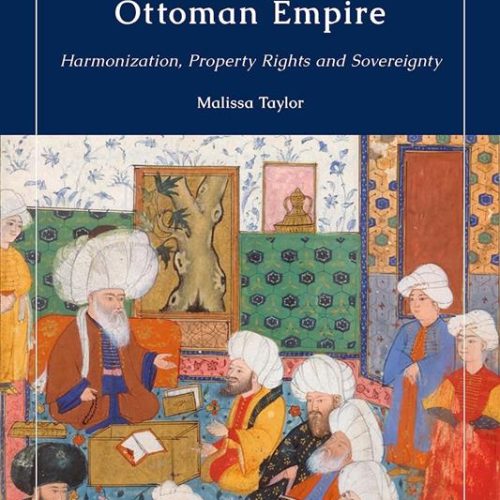
Book Presentation: Malissa Taylor, Land and Legal Texts in the Early Modern Ottoman Empire: Harmonization, Property Rights and Sovereignty (2023)
February 20, 2024Location: Zoom | Time: 2 pm to 4 pm | Date: Thursday, March 7th Land and Legal Texts in the Early Modern Ottoman Empire: Harmonization, Property Rights and Sovereignty (2023) delves into the evolution of Ottoman land law, tracing its development from the sixteenth century to the 1858 Land Code. Through an analysis of legal […]
Read this article⟶
IIS to host dialogue between CRA & Muslim-led charity sector
February 6, 2024The Institute of Islamic Studies at the University of Toronto invites the Muslim-led charitable sector to participate in a dialogue with the Charities Directorate of the Canada Revenue Agency to address concerns and deepen understanding. Session 1: PlenaryThursday, February 29, 2024 (evening) – 6pm to 9:30pm Session 2: Sub-Sector Discussions (limited capacity):Friday, March 1, 2023 […]
Read this article⟶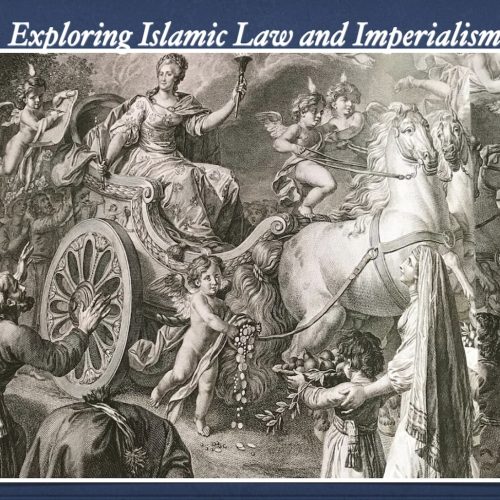
Workshop Series: Exploring Islamic Law in Imperial Contexts
January 30, 2024Location: Zoom | Time: 2 pm to 4 pm | Date: May 16 Welcome to our monthly workshop on Islamic law and imperialism. The goal of our workshop is to explore the local legal transformations that occurred under the influence of imperial powers. Our workshop series aims to decentralize the traditional narratives of European colonialism. […]
Read this article⟶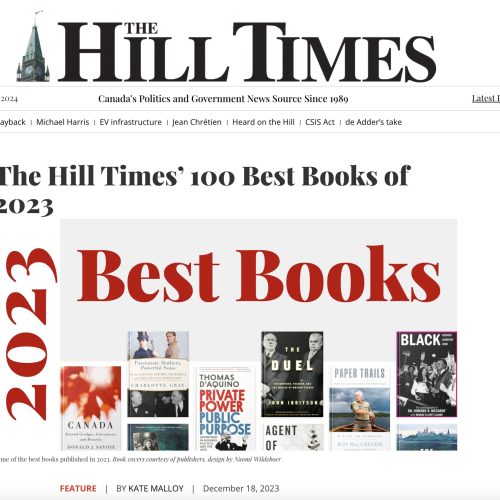
‘Systemic Islamophobia in Canada: A Research Agenda’ Named the Top 100 Best Books of 2023.
January 15, 2024Systemic Islamophobia in Canada: A Research Agenda, edited by Anver M. Emon and published by the University of Toronto Press, has been named among the top 100 best books of 2023. This insightful 296-page book delves into the intricate and pressing issue of systemic Islamophobia in Canada. To explore the content of this new book, […]
Read this article⟶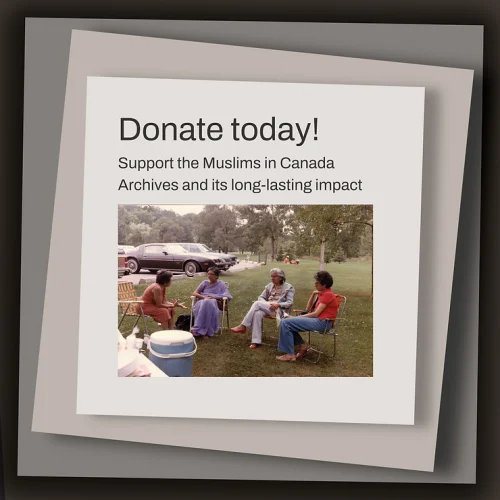
$50,000 pledged to support the future of the Muslims in Canada Archives!
December 7, 2023We extend our gratitude to Canadian Muslim leader Hussein A. Hamdani for contributing a sizeable gift to MiCA. Hamdani’s vital support for MiCA reflects his long-standing interest in capturing the history of a marginalized community. Establishing an archive to preserve the rich history and legacies of Muslims in Canada requires resources. We welcome these generous […]
Read this article⟶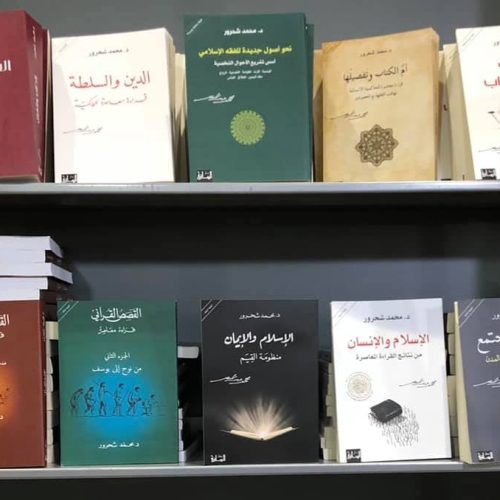
2nd Session – Workshop Series: Contemporary Islamic Thought
November 29, 2023Time: 1:30 PM to 3:30 PM Date: January 25, 2024 Virtual: Register Here Welcome to our monthly workshop on Contemporary Islamic Thought. The goal of this series is to explore the understudied reformist Islam of the late Syrian intellectual Muhammad Shahrour (1938-2019). Shahrour’s writings, which appeared with the decline of pan-Arabism in the late 1900s and in response […]
Read this article⟶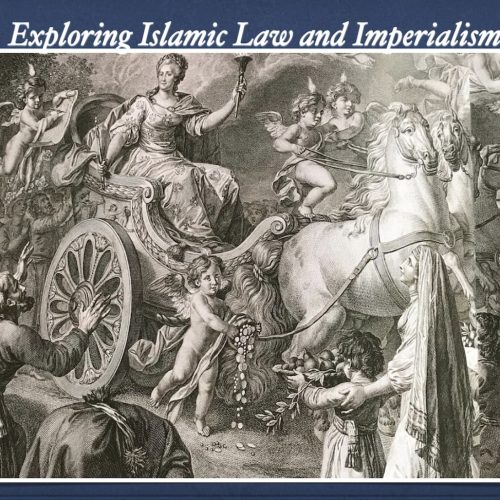
4th Session – Workshop Series: Exploring Islamic Law in Imperial Contexts
November 3, 2023Virtual Event: Register Here Time: 2 pm to 4 pm Date: Thursday, January 18th Welcome to our monthly workshop on Islamic law and imperialism. The goal of our workshop is to explore the local legal transformations that occurred under the influence of imperial powers. Our workshop series endeavours to decentralize the traditional narratives of European […]
Read this article⟶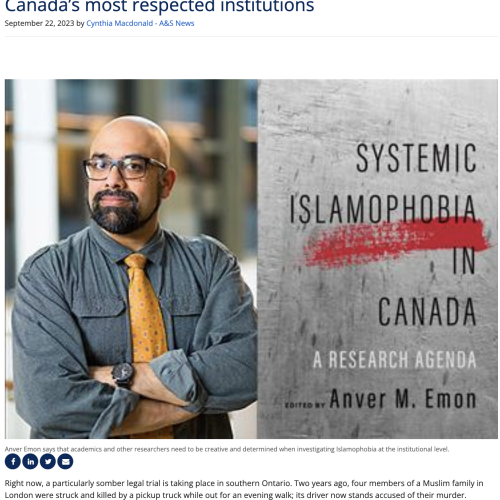
Prof Emon discusses new book ‘Systemic Islamophobia in Canada’
October 11, 2023Professor Emon explores the existence of Islamophobia in Canadian institutions and edited this collection of essays from leading Canadian scholars in reaction to the shortcomings of a national summit on Islamophobia in addressing systemic problems. You can access the full article on the Faculty of Arts and Science at the University of Toronto’s website. To explore the […]
Read this article⟶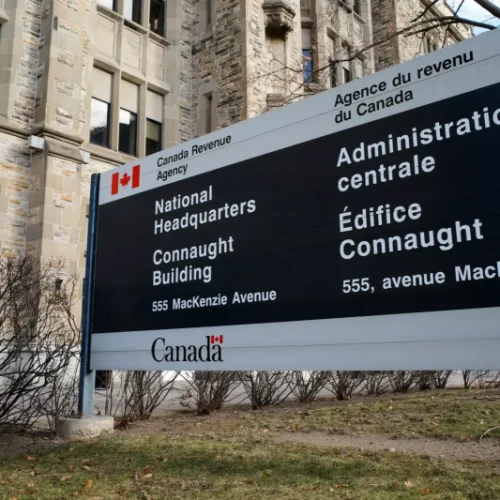
Ontario Superior Court Findings Echo IIS Report ‘Under Layered Suspicion’
October 5, 2023On September 13, 2023, the Ontario Superior Court ruled against intervening in Canada Revenue Agency’s (CRA) audit of the Muslim Association of Canada (MAC)*. MAC raised a Charter challenge against the CRA on the grounds of violating religious freedom and non-discrimination. Muslim communities in Canada have long (but quietly) been concerned about CRA’s audit practices. […]
Read this article⟶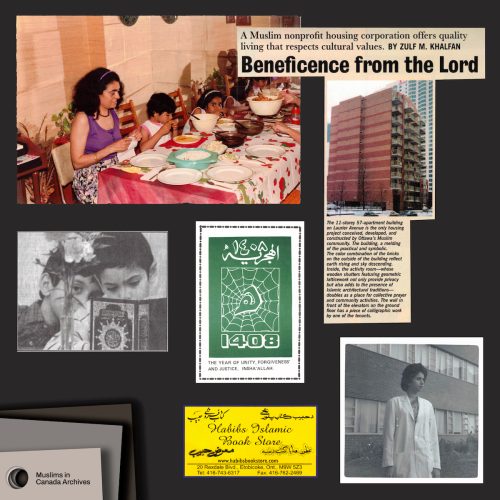
Celebrating Islamic History Month: Subscribe to MiCA’s newly launched newsletter!
October 2, 2023The Institute of Islamic Studies (IIS) is pleased to be a part of the Muslims in Canada Archives (MiCA) newsletter and social media launch! MiCA is a project currently hosted at the Institute of Islamic Studies. Throughout Islamic History Month, MiCA and the IIS will be sharing stories from the archive representing the everyday realities and experiences of Muslims and Muslim communities in Canada. Follow along as we reflect on the past, present, and future of Muslims in Canada.
Read this article⟶
Call for Applications: Post-Doc Fellow, Systemic Islamophobia
August 31, 2023The Systemic Islamophobia Research Lab (SIRL) Fellowship The Systemic Islamophobia Research Lab (SIRL) – at the Institute of Islamic Studies (IIS), University of Toronto – supports the best and brightest minds committed to examining institutionally entrenched modes of Islamophobia. This call for applications is for candidates committed to interdisciplinary research on Children’s Aid Societies (CAS) […]
Read this article⟶
Sana Patel appearance on The Scope (British Muslim TV)
February 12, 2023Postdoctoral Fellow Sana Patel was recently featured on The Scope (BritishMuslimTV) alongside Leila Bdeir to discuss Islamophobia in Canada. Sana explained that Canada has a long history of Islamophobia which includes American influence. She also described the ways in which online spaces allow Islamophobia to prevail due to their unregulated characteristics. You can view the full episode at: […]
Read this article⟶
Hiring: Business Officer & Admin, Outreach, Comms Assistant
January 30, 2023The Institute of Islamic Studies (IIS) is hiring for two positions: Business Officer & Administrative, Outreach and Communications Assistant to the Director. Given the expanding scope and operations, the IIS is bringing on more staff to enhance and support its various projects and work. We encourage anyone interested in working at the IIS to carefully […]
Read this article⟶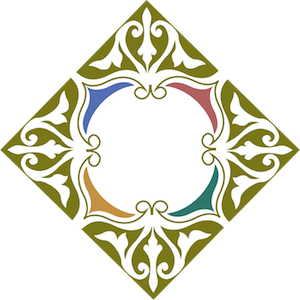
Does Diversity Discourse Matter in the Integration of Muslim Minorities?
January 26, 2023Jeffrey G. Reitz,1 Patrick Simon,2 and Emily Laxer3 December 2022 Muslim immigrants’ religious affiliation and social integration in Western countries have been hot button issues particularly in the two decades of “war on terror” following 9/11, in response to attacks by persons claiming a global Islamic agenda in several countries and extensive media coverage keeping […]
Read this article⟶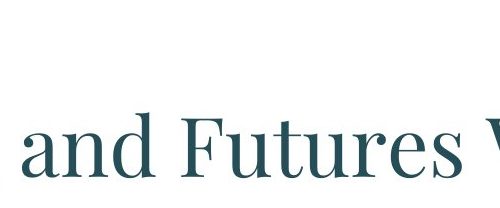
Islamic Studies: Past, Present, and Futures Workshop – Winter 2023
January 13, 2023Dear members of the Islamic Studies community at UofT, It is our pleasure to announce the Winter 2023 Semester schedule for the Islamic Studies Past, Present, and Futures Workshop. All sessions will meet on Tuesdays at noon Eastern in a hybrid format: in-person at the IIS offices (fifth floor, Jackman Humanities Building) or on Zoom. […]
Read this article⟶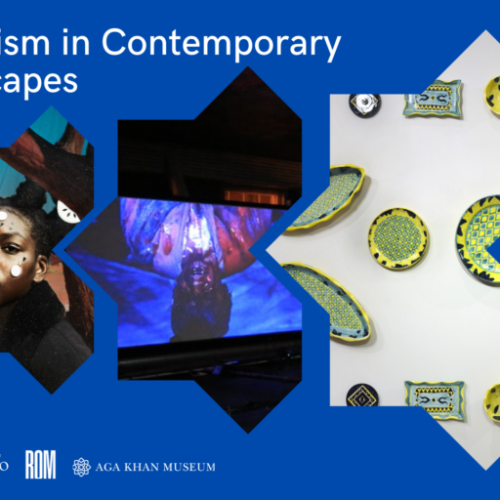
IAMCC 2023 Speaker Series: Art and Activism in Contemporary Global Landscapes
January 3, 2023The Islamic Art & Material Culture Collaborative (IAMCC) is pleased to announce the launch of the second iteration of its online conversation series. This new series entitled Art and Activism in Contemporary Global Landscapes will consist of 4 monthly sessions held on Zoom on Saturdays from January to May at 11 a.m. EST. Our 2023 series aims to highlight […]
Read this article⟶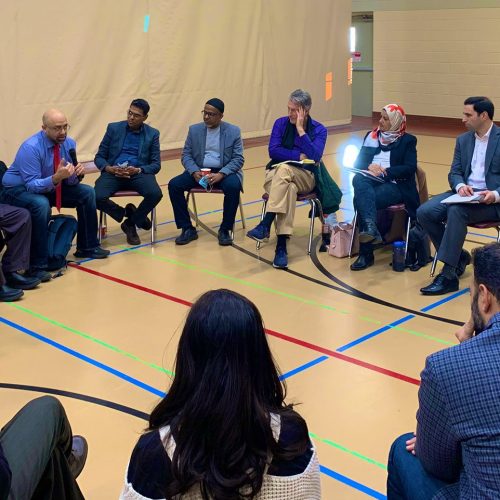
Statement on Taxpayers’ Ombudsperson’s update
November 28, 2022The Institute of Islamic Studies (IIS) centers the study of Islam and Muslims to better understand our society, including the scope (and breaches) of Canada’s democratic promises. The IIS’ 2021 report, “Under Layered Suspicion”, shed light on the scope and limits of Canadian democracy in relation to Canada’s civil society and the charitable sector. The report […]
Read this article⟶
Job Opportunity: Digital Network Officer
November 28, 2022The Institute of Islamic Studies is hiring a Digital Network Officer to support the growing needs of its projects. Below is a copy of the job posting, but we encourage you to visit the original posting for all complete and latest details. Digital Network Officer Date Posted: 11/28/2022Req ID: 28685Faculty/Division: Faculty of Arts & ScienceDepartment: Institute of Islamic StudiesCampus: St. […]
Read this article⟶
New MiCDI project & job opportunity for ‘Theorizing Islamophobia’
November 23, 2022The Muslims in Canada Data Initiative (MiCDI) is pleased to announce a new research project funded by the Peel Social Lab: Theorizing Islamophobia. The new project also has a job posting for a Research Assistantship (more details below). Announcement: Theorizing Islamophobia Job Opportunity: Graduate Research Assistantship (50 hours) New Project – “Theorizing Islamophobia” – To […]
Read this article⟶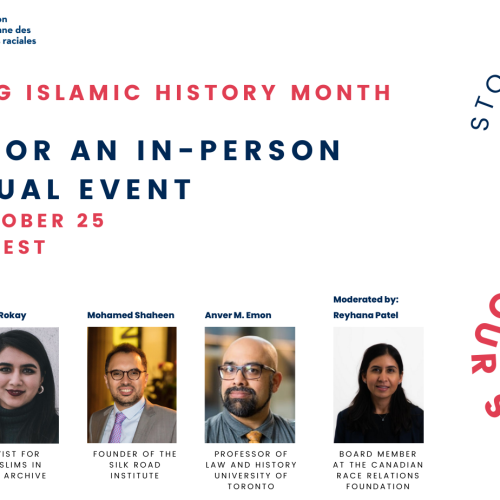
Muslims in Canada Archives project shared at CRRF’s panel on storytelling
November 16, 2022The Canadian Race Relations Foundation (CRRF) was proud to host a hybrid event in honour of Islamic History Month. “Storytelling is Our Superpower”. Anver Emon and Moska Rokay were part of the panel and discussed the role that the Muslims in Canada Archives project plays in enabling storyrelling. You can now watch the recording from […]
Read this article⟶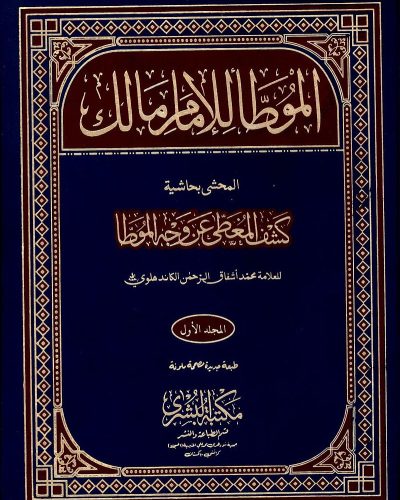
Master Class: The Muwatta’ Through the Ages
October 13, 2022The master class is intended to introduce the students to how a text like the Muwatta’ has been read by Muslims and even non-Muslims over its long, 1,000+ year history.
Read this article⟶
Shaping Muslim Futures: Narratives, Frameworks and Visions
September 1, 2022Situated at the nexus of critical Muslim studies and critical futures studies, this workshop invites students to contemplate and vision alternative futures.
Read this article⟶
Report on CSIS and Discriminatory Practices – Call for Researcher
August 26, 2022In a joint project, the University of Toronto’s Institute of Islamic Studies seeks a researcher to write a report on the Canadian Security Intelligence Service (CSIS) and allegations of its discriminatory practices against religious minorities and persons of colour with specific focus on access to and respect for legal counsel.
Read this article⟶
New issue of Islam in the City: Homecoming
August 22, 2022About the Issue & Theme(s): This fifth issue of Islam in the City offered an outlet for reflections on a return after a period of change and instability. Through a theme of “homecoming”, how can one imagine a readjustment of their emotional routines? And how can the impact of the pause to normalcy be reconciled with the […]
Read this article⟶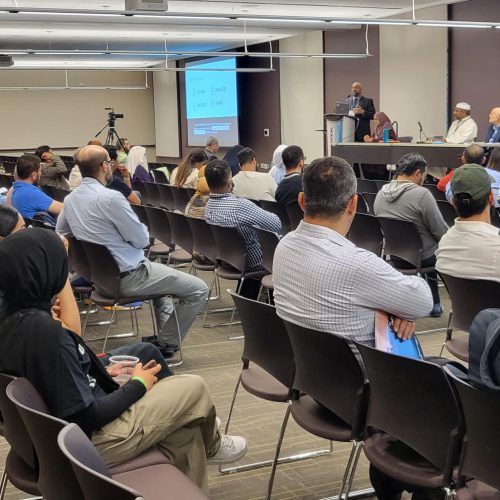
Community Engagement Policy
August 15, 2022As we pursue innovative research projects collaboratively with others, we recognize these as important and timely engagements in which all parties to the project share a specific commitment consistent with the principles and priorities of all parties involved. The IIS does not expect community partners to alter their varied priorities and policies to align with those of the IIS or the University of Toronto, nor will the IIS alter its core mission and purpose.
Read this article⟶
The Rimāḥ De-Marginalized: Sealing Sainthood and Ṭarīqa Formation in 19th Century West Africa
August 12, 2022Author: Farah El-Sharif In 1995, Islamic Africa specialist John Hunwick lamented that Kitāb al- Rimāḥ “lies unstudied by Africanists and Islamicists like a hard lump in the stomach, massive and undigested.” Enabled by the works of countless scholars who have made enormous inroads into the field of Islamic scholarship in West Africa today, my PhD […]
Read this article⟶
Job Posting: Graduate Research Assistantships
July 14, 2022Graduate Research Assistantship: Islamophobia Index Development (400 hours) Area of Research The study of Islam and Muslims in Canada Description of Duties This Research Assistantship (RAship) will invite a graduate student to work closely with a MiCDI data team member to develop an index measuring Islamophobia. The role would include qualitative data analysis, conceptualization and operationalization […]
Read this article⟶
Prof Emon Testimony at Senate of Canada
July 12, 2022On June 20th, 2022, Professor Anver Emon (Director, Institute of Islamic Studies) gave testimony to the Standing Senate Committee on Human Rights on the topic if Islamophobia in Canada (link contains meeting minutes, transcript, and video). Professor Emon’s statement (click to read the full statement) shows how Islamophobia takes shape in the Federal Government’s bureaucratic workings across […]
Read this article⟶
Learning Islamophobia: Prof Emon at SFU
May 30, 2022Recently Dr. Anver Emon, (Director of Institute of Islamic Studies ) visited Simon Fraser University to discuss the role of academia in countering the damaging legacy of stereotypes about Islam and Muslims. You can now watch a recording of the discussion between Dr. Emon and Dr. Amyn B. Sajoo as they discussed topics such as: […]
Read this article⟶
Muslims in Canada Archives (MiCA) included in Federal Budget 2022
April 7, 2022The Institute of Islamic Studies, University of Toronto, welcomes the inclusion in the proposed federal budget of the Muslims in Canada Archives (MiCA) project. We thank the Government of Canada for its support, and the strong advocates for MiCA in the Government, such as MP Arif Virani (Parkdale -High Park). We look forward to working closely and […]
Read this article⟶
Prof Anver Emon Appointed to Advisory Committee on Charitable Sector
April 6, 2022We’re pleased to share that Professor Anver Emon (Director, Institute of Islamic Studies) has been appointed to the Advisory Committee on the Charitable Sector (ACCS). Prof Emon’s appointment comes as the Office of the Taxpayers’ Ombudsperson continues its systemic examination of the Charities Directorate’s audit process. The appointment of diverse members to the committee, which the Honourable Diane […]
Read this article⟶
Islamic Studies Past, Present, and Futures Workshop
January 14, 2022Winter 2022 Schedule *All Winter 2022 sessions will meet on Zoom at Noon. Please sign up here to join the mailing list to receive information for the sessions January 31Arafat Razzaque (Assistant Professor, Near and Middle Eastern Civilizations)“Can Insulting Someone Break Your Wuḍūʾ? A Debate on Ritual in Early Islamic Law and Ethics” February 7Amira Mittermaier (Professor, Study of Religion)“God, […]
Read this article⟶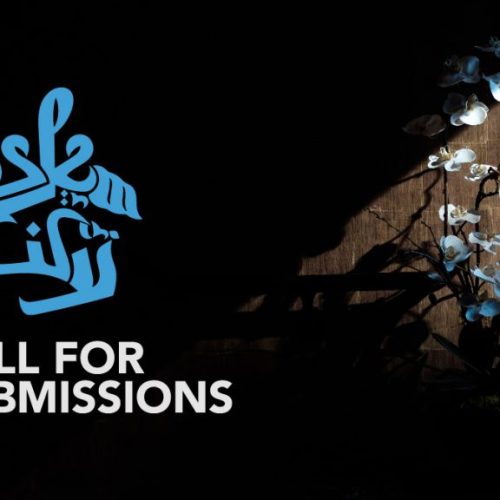
Call for Submissions: Islam in the City Spring 2022
January 5, 2022The theme for the Spring 2022 edition of Islam in the City is regrowth and reclamation of autonomy in the city. As we enter spring, we begin to shift our habits to the new season. In this edition, we hope to spotlight your take on rebirth and reclamation of autonomy after two years of a drastically changed reality. How […]
Read this article⟶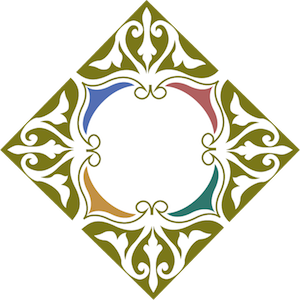
From the Sidelines: Confronting Sunni Privilege in the Student Experience
December 1, 2021Author: Yasmeen Atassi The Islamic Holy book, the Quran, and the hadiths (reports about the Prophet Muhammad) serve as sources of guidance for Muslims, regardless of sect or school of thought. But though the origins of Islam in divine revelation are generally accepted among different Muslim groups, points of divergence exist because of human interaction with the text. The need for self-justification particularly impacts how we read texts and internalize them. It is these points of […]
Read this article⟶
The Need of Protestantization: Reading Oneself Through European History
November 3, 2021Through a reading of several Muslim reformers from the 19th and 20th centuries, this article investigates the influence that historical narratives have on the reading of the self, identity of the other, the status of one’s tradition, and one’s future.
Read this article⟶
The Crisis in Afghanistan: Teaching to the Conflict
September 21, 2021Watching the news of Afghanistan over the last few weeks has been heartbreaking for many of us who have a close connection to the country, its people, and its history. For some Afghan-Canadians, they watch from the comfort of their homes, often with a sense of guilt as relatives still in the country scramble to escape. […]
Read this article⟶
Call for Applications: Senior Fellow(s) & Editor
August 23, 2021***Please note that only students enrolled at UofT are eligible to apply for the positions listed below. Please see the specific eligibility requirements for each position.*** A PDF version of this Call for Applications can be found here. Islamic Art and Material Cultures Collaborative (IAMCC)Senior Fellow The Institute of Islamic Studies issues a call for applications for […]
Read this article⟶
Untangling the “Systemic” Nature of Islamophobia
August 22, 2021Last March, 2021, the Institute of Islamic Studies (IIS) was pleased to host the online platform for Under Layered Suspicion: A Review of CRA Audits of Muslim-led Charities. The report was the fruit of a collaborative research and engagement process led by Anver Emon, Director of the IIS, and Nadia Z. Hasan, Chief Operations Officer of the National […]
Read this article⟶
Islam in the City: Crossroads
August 19, 2021The third volume of our student run publication, Islam in the City: Crossroads is out! The summer issue tells a myriad of stories, some personal — some borrowed. How does Vampire Weekend and Eid intersect? Where do the ethics of medical racism lie? How does the “modesty myth” impact the way assault and abuse is […]
Read this article⟶
Reading Muslims: Reflections on #OurLondonFamily
July 13, 2021The IIS is deeply grateful to everyone who held space to process and grieve, in the wake of the tragic murders in London, ON last month. During that time, the Reading Muslims network compiled and posted a series of reflections in solidarity with #OurLondonFamily. The compilation is now made available as a publication below. We […]
Read this article⟶
Kamala Khan vs. The Women we Put in Refrigerators
July 8, 2021Author: Salwa Iqbal Muslim representation in the media is on the rise, and comic books are no exception. Traditionally, the representation of Muslim women in comics has been caricatural at best, and offensively orientalist at worst.((Examples of orientalist female characters include “The Veil”, a villain introduced in the X-Men series in 1991; Nicieza, Fabian. “The […]
Read this article⟶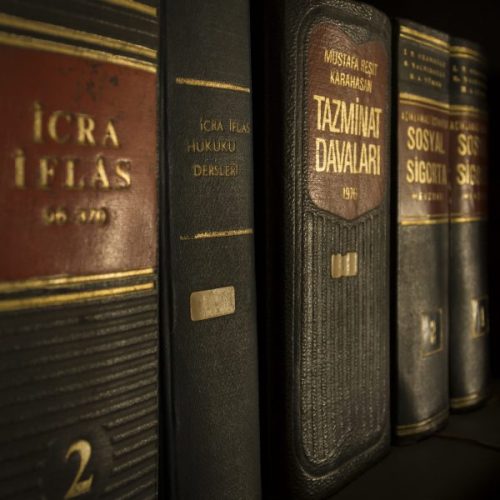
Statement on CAUT Censure and IIS Programming
June 11, 2021On April 22, 2021, the Council of the Canadian Association of University Teachers (CAUT) unanimously voted (with one abstention) to censure the University of Toronto for violating academic freedom in the hiring process for the Faculty of Law’s International Human Rights Program Director. The Faculty of Law’s selection committee unanimously agreed on a single candidate, […]
Read this article⟶
Acts of Erasure: the consequences of lethal policy, biases, and discrimination
June 8, 2021On the evening of June 6, 2021, 20-year old Nathanial Veltman decided to maim, murder, and erase from existence, a family of Muslims out on a daily walk, simply because they were Muslim.
Read this article⟶
The Story of Our Stories – Muslims in Canada Archives (MiCA) Storytelling Circle
May 10, 2021One of the many blessings of working as an archivist at MiCA is the chance to connect with a cornucopia of wonderful people that I may not have had the pleasure of meeting otherwise. Although we use different avenues to do our work, the brilliant ribbon that ties us all together is our shared passion, commitment, and drive to amplify the stories and lived experiences of Canadian Muslims […]
Read this article⟶
Call for Senior Fellows: Islamic Art & Material Culture – 2021-2022
April 29, 2021The Institute of Islamic Studies (IIS) at the University of Toronto invites applications for an innovative Fellows Program in Islamic Art and Material Culture. The Fellows Program is a joint project of the IIS, Aga Khan Museum (AKM), and Royal Ontario Museum (ROM), and is run collaboratively through the Islamic Art and Material Culture Collaborative (IAMCC). The definition of Islamic art […]
Read this article⟶
Response to Federal Budget’s proposed Anti-Terrorist Financing measures
April 29, 2021On April 19, 2021 Deputy Prime Minister and Minister of Finance Chrysta Freeland presented to Parliament the 2021 Federal Budget. Not surprisingly, the budget narrative is framed around the need to respond to COVID19 and overcome the economic recession it has caused across Canada. But while the budget presents a considered impetus to Canada in […]
Read this article⟶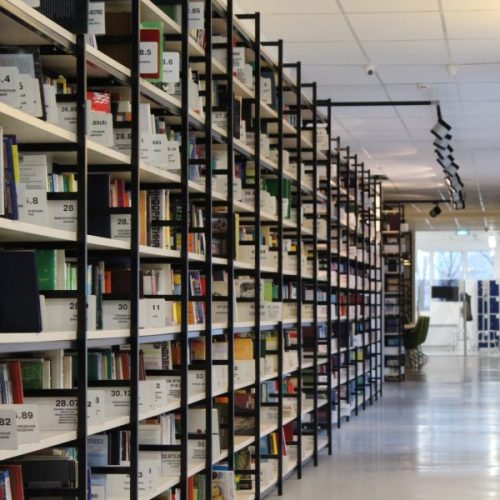
Cataloguing an Archive in a Pandemic – The Progress and Development of the Esplin Arabic Manuscript Collection
April 13, 2021After nearly 50 years of obscurity, a large collection of rare manuscripts in the basement of the Thomas Fisher Rare Books Library has found new life as the Institute of Islamic Studies (IIS) and the University of Toronto Libraries (UTL) agreed upon and implemented a plan to catalogue this collection, thereby opening it up to […]
Read this article⟶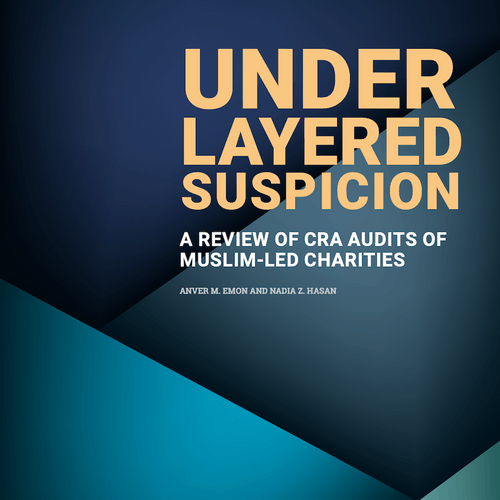
Report launch: on structural biases and prejudicial policies in CRA audits of Muslim-led charities
March 30, 2021We at the IIS are proud to launch a new research report, in partnership with National Council of Canadian Muslims (NCCM), called “Under Layered Suspicion: A Review of CRA Audits of Muslim-led Charities”. The report can be found at: layeredsuspicion.ca The report finds potential biases and prejudicial policies that influence the Canada Revenue Agency’s (CRA) […]
Read this article⟶
Queer and Muslim: Beyond the Normative Dilemma
March 7, 2021Author: Aaisha Salman In 2018, The Queer Muslim Project (TQMP), an online collective initiated by gender and sexuality rights advocate, Rafiul Alom Rahman, held a workshop in Delhi entitled “DIY Islam” (Do-it-Yourself Islam). As a part of this workshop, TQMP invited queer Muslims in the city to reflect on their experiences of Muslimness and faith, “both good and bad.”[1] On their Instagram page, TQMP archived this project […]
Read this article⟶
Announcing the Muslims in Canada Data Initiative (MiCDI)
February 15, 2021The Institute of Islamic Studies (IIS) is excited to introduce you to a new and exciting venture: the Muslims in Canada Data Initiative (MiCDI). MiCDI examines and and develops large-scale data sets, that improve the visibility of Muslims across Canada. With a higher resolution understanding of Canada’s Muslims communities, MiCDI can enable more effective discussions […]
Read this article⟶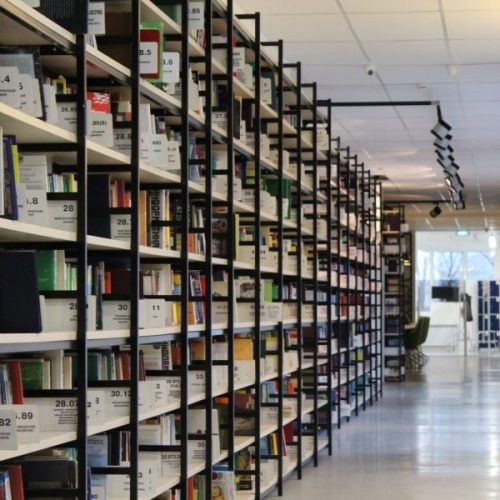
Muslims in Canada Archives (MiCA) project covered in Toronto Star
January 26, 2021The Muslims in Canada Archive (MiCA) project was recently featured in the Toronto Star. Moska Rokay (Research Fellow and Project Coordinator for MiCA), and Anver Emon (Director, Institute of Islamic Studies) share insights about the origins of the project and how it fits into a broader societal shift in empowering community members to tell their […]
Read this article⟶
Reading Muslims: Launch webinar on Jan 21
January 4, 2021We’re very excited to share some updates from the Reading Muslims project, as we develop the project throughout the year ahead. About Reading Muslims Reading Muslims is an interdisciplinary conversation on the role of texts and textuality within Islamic studies. The project re-examines the methodological assumptions surrounding the history and use of texts across a […]
Read this article⟶
IIS Occasional Paper Series: Canadian Muslim Health Exceptionalism
December 16, 2020A report was recently published by the Institute of Islamic Studies (IIS), led by Dr. Sarah Shah, on the status of health data and research on Canadian Muslims. The paper titled “Canadian Muslim Health Exceptionalism—Community Consultation” is available to the public here: https://tspace.library.utoronto.ca/handle/1807/102879 Abstract:This report follows a recent scoping review on Canadian Muslim health. The […]
Read this article⟶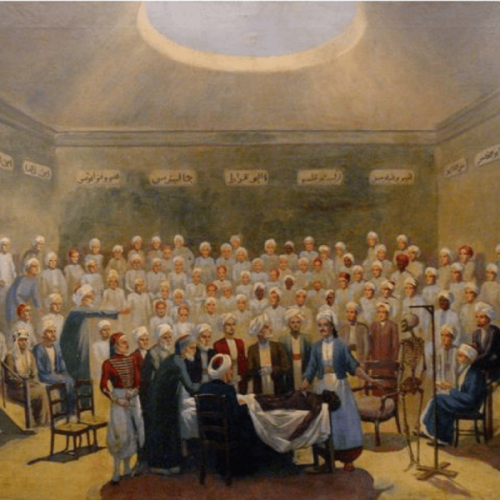
Visiting Lecturer: Reflections from Khaled Fahmy’s lecture series
November 27, 2020Earlier this month we had the honour of hosting Khaled Fahmy – Professor of Arabic Studies, Cambridge University – for a week-long engagement at the Institute of Islamic Studies (IIS). Public LectureKhaled Fahmy’s visit contained a public lecture titled “History of Islamic Legal Practice: Some Insights from 19th Century Egypt”. In this lecture, Professor Fahmy […]
Read this article⟶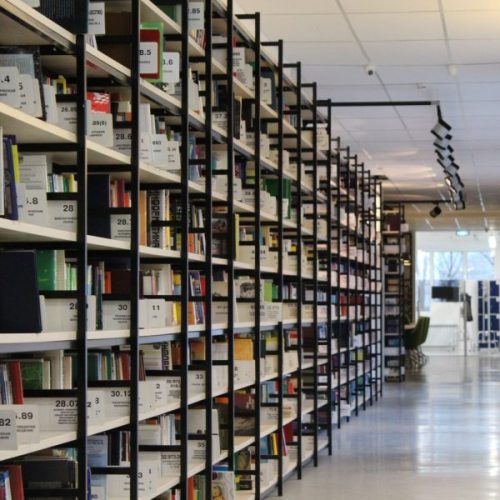
Muslims in Canada Archives: Webinar Series
November 19, 2020To introduce communities to the Muslims in Canada Archives (MiCA), project lead – Moska Rokay – will be hosting three virtual sessions from December 2020 through January 2021. The sessions will be held on Zoom and will be recorded (in true archival fashion). The need for a Muslim community archiveThe chance to tell your story […]
Read this article⟶
Reading Muslims podcast with Juliette Galonnier: “France’s Fears over ‘Islamic Separatism’ and Academic Freedom”
November 17, 2020On Oct 16th, a French schoolteacher in the suburbs of Paris named Samuel Paty was murdered by a Muslim man for showing his classroom caricatures of the Prophet Muhammad. The aftermath has placed Islam and Muslims under scrutiny with the government claiming that “Islamist separatism” is challenging the Republic’s values and unity. In this podcast, […]
Read this article⟶
Press Release: MiCA partners Memorial University and MANAL receive grant to archive Muslim lives in Newfoundland and Labrador
August 5, 2020MiCA partners Memorial University and Muslim Association of Newfoundland and Labrador (MANAL) have been awarded an SSHRC grant to launch the Muslim Narratives and Lives in Newfoundland and Labrador Community Project (MNL in NL Community Project). Lead by co-PIs Jennifer Selby and Ayse Sule Akinturk, the project will both locate and create archival materials to […]
Read this article⟶
Press Release: SSHRC Partnership Grant for Muslims in Canada Archives (MiCA)
August 5, 2020The IIS is pleased to announce that Canada’s Social Sciences and Humanities Research Council has awarded a Partnership Development Grant to support the development and growth of the Muslims in Canada Archives (MiCA). MiCA is a project of the IIS in partnership with a number of national and local archival institutions, such as the University […]
Read this article⟶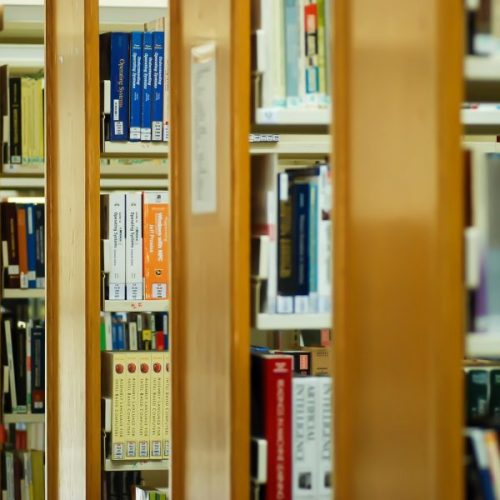
Press Release: Connaught Global Challenge Grant for Reading Muslims
August 5, 2020The Institute of Islamic Studies will launch in Fall 2020 a new research collected entitled Reading Muslims. Supported with a recently awarded grant from UofT’s Connaught Global Challenge Fund, Reading Muslims will be lead by Co-PIs Anver M. Emon and IIS Post-Doctoral Fellow Youcef Soufi. Over the next two years, Reading Muslims will host a […]
Read this article⟶
On Anti-Black Violence & Racism in the US and Canada
June 4, 2020To the IIS community of faculty, staff, students, and community partners I’ve had the pleasure to talk to many of you over the last few days, as we struggle individually and collectively in the wake of horrific police violence against Black Americans such as George Floyd, Breonna Taylor, and Ahmaud Arberry, as well as the […]
Read this article⟶
The Esplin Arabic Manuscript Projects: The History and the Future
December 6, 2019In 1973, David Esplin, then associate chief librarian of the Thomas Fisher Rare Books Library, purchased from Sulaiman’s Book Shop in Beirut, Lebanon, a collection of almost 1,200 manuscripts. These texts were primarily in Arabic and from the 19th century, although some go back as far as the 17th. This collection, in its astounding number […]
Read this article⟶
BIPOC Femmes Fitness Collective
November 27, 2019An IIS-Hart House Joint Initiative In recent years, the world has witnessed an increase of Muslim women-identified athletes. At the 2016 Rio Olympics, of the 33 Muslim women athletes who competed, 14 won medals across a range of sports. Audiences were enthralled by these women’s physical abilities and impressive strength, yet public discourse centered on […]
Read this article⟶
Launched: National Security Student Hotline
August 11, 2019The IIS, in collaboration with the National Council of Canadian Muslims (NCCM), the Canadian Muslim Lawyers Association (CMLA) and Downtown Legal Services (DLS) has launched its support hotline for UofT students approached by CSIS or other Canadian national security agent seeking information or an interview. While CSIS and other national security agencies have an important […]
Read this article⟶
10th Annual Ibadi Conference at the UofT
June 20, 2019For immediate release: From June 17-19, 2019, the Institute of Islamic Studies hosted the 10th annual Ibadi Conference at the University of Toronto. We were especially pleased to host His Excellency, Minister Abdullah Al Salimi of the Government of Oman, whose Ministry of Religious Endowments supported the conference and helped bring together a diverse and […]
Read this article⟶
Press Release — On the Terror in New Zealand
March 15, 2019We are all saddened by the tragic terrorist acts in New Zealand directed at Muslims in prayer at their mosques. For Canadians, this heinous act hits especially hard, as we have only just commemorated on January 29th the Quebec City mosque massacre, in which 6 Canadian Muslims were killed while in prayer, by Canadian White-supremacist […]
Read this article⟶
New Research Lab: Law and the Margins (CENTmar)
January 17, 2019As stated in the inaugural director’s message in September 2019, the IIS is committed to advancing the scale and scope of advanced research. This year, we began with two research labs, the Study of Islam and Muslims in Canada (SIMiC) and Between the Straits. We are pleased to announce the formation of a third research […]
Read this article⟶
Director’s Message
December 17, 2018And we’re off! Fall 2018 was a stellar term for the IIS. With faculty and graduate students from all three UofT campuses, a global cohort of faculty visiting Toronto, and community partners that now see the IIS as an institutional ally, the Institute’s seminar room was nothing short of lively. Faculty from across the UofT […]
Read this article⟶
Brinkley Messick Master Class — Call for Applications
December 17, 2018On Wednesday, March 6, 2019, the IIS is pleased to present a master class delivered by Professor Brinkley Messick (Columbia University). Messick is the inaugural visiting lecturer at the IIS in 2019. His master class, directed to graduate students, post-doctoral fellows, and faculty, is a 3 hour seminar (with a one hour lunch break) scheduled […]
Read this article⟶
Inaugural Visiting Lecturer: Brinkley Messick — Lecture Schedule
December 17, 2018For the week of March 4, 2019, the IIS is pleased to host inaugural visiting lecturer Professor Brinkley Messick (Columbia University). Over a period of three days, Professor Messick will give a book talk on his recent book Sharia Scripts; a master class for graduate students, post-doctoral fellows and faculty; and a public lecture at UTM. Tuesday, […]
Read this article⟶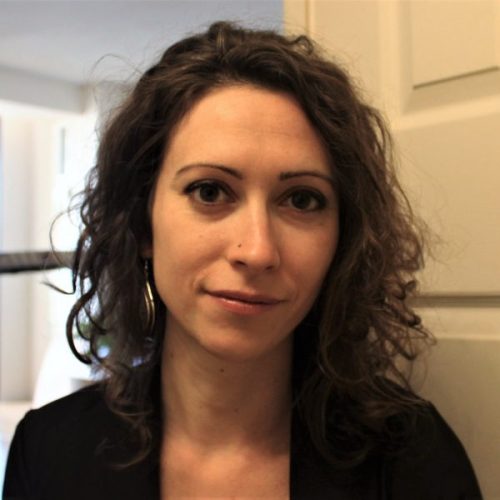
IIS Welcomes Post Doctoral Fellow Catherine Larouche
December 10, 2018The IIS is pleased to welcome Catherine Larouche, who will be part of our research community for the 2018-2019 academic year. Catherine is a postdoctoral research fellow at the Department of Anthropology, University of Toronto. She completed her PhD in sociocultural anthropology at McGill University in 2018. Her research interests include the anthropology of philanthropy […]
Read this article⟶
IIS Welcomes Dr. Albert Frolov Post-doctoral fellow and scholar at risk
November 10, 2018In November 2018, the IIS welcomed to its offices Dr. Albert Frolov, a post-doctoral fellow and scholar at risk. We asked Dr. Frolov to write a short introduction to his work and hope that our community of scholars and students will take part in the Arabic philosophy seminars he will be leading in the Spring. […]
Read this article⟶
Inaugural Visiting Lecturer 2019: Brinkley Messick
September 17, 2018The IIS is pleased to announce that Brinkley Messick, Professor of Anthropology, at Columbia University is the inaugural 2019 IIS Visiting Lecturer. Professor Messick specializes in the anthropology of law, legal history, written culture, and the circulation and interpretation of Islamic law. He is the author of The Calligraphic State (1993), which was awarded the Albert Hourani […]
Read this article⟶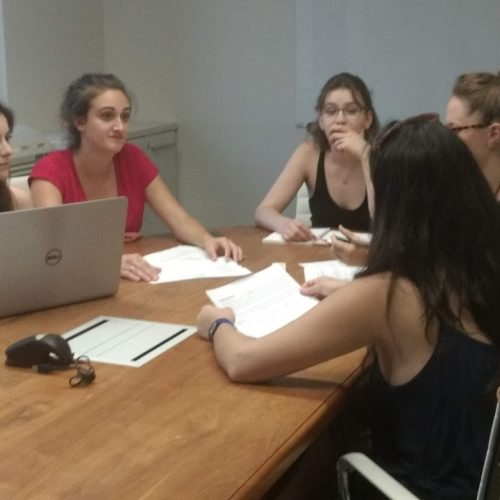
Universite d’Montreal and the IIS@UofT: The Beginnings of Canada-wide research collaboration
September 5, 2018Over the course of two weekends in the month of August 2018, a graduate research team from Université de Montréal conducted field work in Toronto out of the IIS offices. We were a team of about ten Masters and Doctoral students from UdM’s sociology department. Our project, entitled “Political Fictions : An analysis of fictional […]
Read this article⟶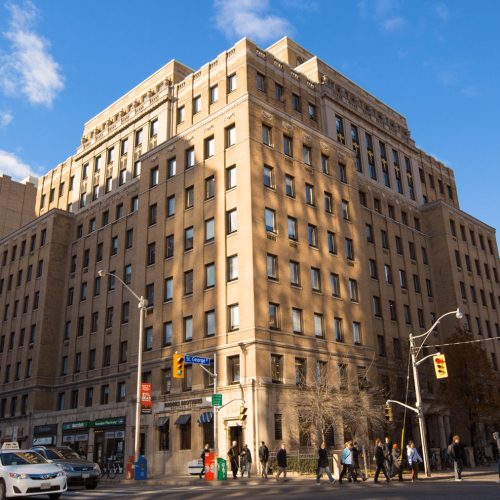
Director’s Message
September 3, 2018Welcome to the newly redesigned website of the Institute of Islamic Studies (IIS) at the University of Toronto. The IIS is devoted to supporting advanced research in the study of Islam and Muslims. As director of the IIS, it is a privilege to lead an advanced research institute in this historical moment. It’s often easy […]
Read this article⟶